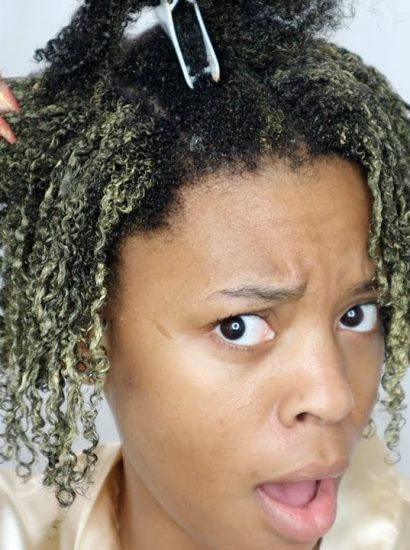Many people notice that their hair seems to grow more during the warmer months. Whether it feels thicker, longer, or stronger, summer often brings a belief that hair growth speeds up when the sun is out. But is that true, or is it just a myth? Let’s explore the science behind how your hair grows, what changes might happen in different seasons, and how to make the most of your hair’s natural growth cycle.
Understanding How Hair Grows
Hair grows in cycles, and every strand goes through phases known as anagen, catagen, and telogen.
The anagen phase is the active growth stage and can last anywhere from two to seven years, depending on genetics and health. During this phase, the root cells divide rapidly, pushing the hair shaft upward and outward from the scalp.
The catagen phase follows and lasts for a few weeks. This is a transition period where the hair stops growing but remains anchored in place.
Finally, the telogen phase is the resting stage. After several months, the hair sheds naturally and makes room for new growth.
At any given time, most of your hair is in the anagen phase, meaning it’s actively growing. However, the speed of this growth can be influenced by internal and external factors — including the time of year.
The Science Behind Seasonal Hair Growth
Scientific research has found evidence that hair growth can change slightly with the seasons. Studies have shown that hair often grows faster in the spring and summer and slows down in autumn and winter.
This happens because our bodies react to seasonal shifts in temperature, sunlight, and hormone levels. Warmer weather can improve blood circulation, helping more oxygen and nutrients reach hair follicles. Longer daylight hours also increase vitamin D production, which is linked to healthier hair follicles and growth activity.
While these differences are real, the changes are usually small. The increase in hair growth during summer might not be dramatic, but it can be enough for some people to notice a difference.
Why Summer Can Boost Hair Growth
Several natural factors come together during summer that may help your hair grow slightly faster.
Increased Sunlight
Exposure to sunlight triggers vitamin D production in the body. This vitamin plays a role in creating new hair follicles and maintaining their health. Healthier follicles mean stronger and possibly faster-growing hair.
Better Blood Circulation
Warm temperatures expand blood vessels, allowing better circulation. This helps deliver nutrients and oxygen to the scalp, fueling active hair growth.
Healthier Lifestyle Habits
Many people eat lighter, more nutrient-rich diets during the summer and spend more time outdoors. Better nutrition and increased activity levels support healthy hair growth overall.
The Role of Hormones and Seasonal Changes
Seasonal changes affect more than just your mood — they can influence your hormone levels too. Hormones like melatonin and prolactin can fluctuate with exposure to daylight. These shifts may subtly impact the hair growth cycle.
In summer, longer daylight hours may suppress melatonin, which could extend the hair’s active growth phase. Similarly, other hormones associated with metabolism and energy might indirectly affect the rate of hair cell production. Though research is ongoing, it’s clear that your body’s internal rhythms respond to seasonal light exposure in many ways, including through your hair.
Common Myths About Summer Hair Growth
There are several popular beliefs about hair growing faster in summer, but not all are true.
One myth is that sweating helps hair grow faster. While exercise and sweating improve blood flow, sweat itself doesn’t directly stimulate growth.
Another myth is that cutting your hair more often makes it grow faster. Hair grows from the root, not the ends, so trimming doesn’t affect the growth rate — though it does help keep hair looking healthy and prevent breakage.
Lastly, the idea that heat itself speeds growth is misleading. Excessive heat can damage hair shafts and make strands more prone to breaking, even if your follicles are growing at the same rate underneath.
Why Hair May Seem Thicker in Summer
Many people think their hair feels thicker during the summer months. While part of that perception may be real, it’s not necessarily because your hair is growing faster.
During warmer months, humidity can cause hair strands to swell slightly, creating more volume. Additionally, if you’re more active outdoors, you might wash your hair more frequently, which can increase its fluffiness and body.
There’s also the psychological effect — brighter light and glowing skin can make your hair appear shinier and healthier, contributing to the illusion of faster growth or more fullness.
The Downside: Summer Damage to Hair
Although the summer season may encourage slightly faster growth, it can also be harsh on your hair. Excessive sun exposure, salt water, and chlorine can all damage the hair shaft.
UV rays weaken the protein structure of hair, leading to dryness, fading, and split ends. Salt water draws moisture from your strands, while chlorine can strip away natural oils, making your hair brittle.
To protect your hair, wear a hat, use leave-in conditioners with UV protection, and rinse hair after swimming. Healthy hair grows better, so protecting it from summer damage ensures that any seasonal growth benefits aren’t wasted on breakage or dryness.
Nutrition and Hydration: Fuel for Hair Growth
Regardless of the season, your hair reflects your overall health. Summer can offer a natural opportunity to nourish your hair from the inside out.
A balanced diet rich in protein, iron, zinc, biotin, and vitamins A, C, D, and E supports strong and healthy hair. Hydration is equally essential — hair needs moisture from within, and dehydration can make it dull and weak.
Including foods like eggs, spinach, nuts, and berries, as well as staying hydrated throughout the day, helps maintain a healthy scalp environment that promotes growth.
How to Maximize Summer Hair Growth
Even if the seasonal boost is small, you can take advantage of it with a few smart habits:
- Massage your scalp regularly to stimulate circulation.
- Use gentle shampoos that don’t strip natural oils.
- Limit heat styling tools like flat irons and blow dryers.
- Protect from the sun with UV sprays or hats.
- Deep condition weekly to restore moisture.
- Avoid tight hairstyles that pull on roots and cause tension.
- Stay hydrated and eat well, as your diet has a major impact on growth.
Consistency is key — these habits create the right conditions for your hair to reach its full potential.
Does Everyone Experience the Same Effect?
Not everyone will notice faster hair growth in summer. Genetics, health, age, and hair care routines all play major roles. For example, if your hair growth cycle is naturally shorter or if you have underlying deficiencies, the effect of summer might be less noticeable.
Geographic location also matters. People living in regions with little variation in daylight or temperature might not experience the same seasonal changes as those in areas with distinct winters and summers.
The takeaway is that while summer can slightly enhance growth, your unique biology and lifestyle determine how much difference you’ll actually see.
Conclusion
So, does hair really grow faster in the summer? The answer is yes — but only slightly. Scientific studies suggest that warmer temperatures, increased sunlight, and improved circulation may give your hair a small seasonal boost. However, the effect is usually subtle and easily overshadowed by other factors like diet, stress, and overall health.
Rather than relying on the season alone, focus on maintaining a healthy scalp, protecting your hair from damage, and practicing consistent care year-round. A balanced approach will do more for your hair’s growth than any seasonal change ever could.
FAQs
1. How much faster does hair grow in summer?
Hair might grow about 10 percent faster in the summer than in winter, but the difference is minimal. You may not notice it unless you track growth closely over time.
2. Does exposure to sunlight help hair grow?
Sunlight helps your body produce vitamin D, which supports healthy follicles. However, too much sun can damage hair, so moderation and protection are essential.
3. Can diet affect seasonal hair growth?
Yes. A nutrient-rich diet full of vitamins, minerals, and protein will support faster, stronger hair growth regardless of the season.
4. Why do I lose more hair in autumn?
It’s normal to shed more hair in the fall because some hairs that grew during summer enter the resting phase around that time. This cycle is part of your body’s natural rhythm.
5. How can I keep my hair healthy during summer?
Stay hydrated, protect hair from UV rays, avoid harsh chemicals, use deep conditioners, and maintain a balanced diet to support growth and prevent breakage.
Also read: The True Meaning of HMUA and How It’s Used Online





